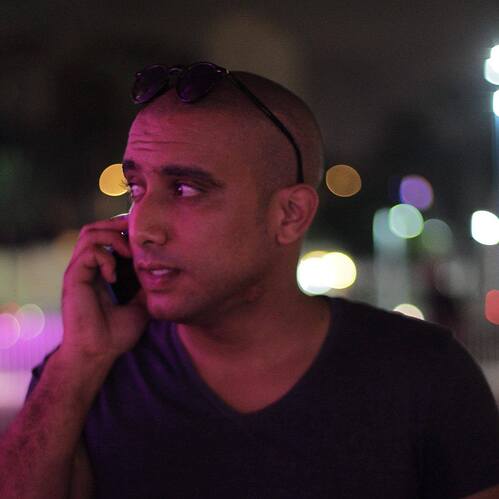So @Nadia came up with this cool idea to interview each other in order to practice writing the case studies and I decided to interview @Driss (he’s going to interview me too) as he is the Engagement Manager for Morocco and as I am very much interested in having Moroccans on the platform ( I have been actively involved in helping @Alberto prepare for his mission in Casablanca/Rabat by finding key people to meet with + someone who would qualify as an Engagement Manager) I decided to do this exercise with Driss to get to know him better.
Driss El Moudni is a young Moroccan entrepreneur who established an advertising agency Nozidees in Casablanca in 2013. You can read his introduction here to learn more about his background.
After coming back to Morocco from Spain he decides to open his own communication and consulting agency as he didn’t want to work in tourism industry mostly as it has a disadvantage of not having regular days off. He rented an office in the downtown Casablanca in a prestigious district of Anfa, which he says is very important for the reputation of the agency.
Who’s involved: Who is in the team? Roles and responsibilities? Skillsets (what are individual team members good at?)
“There are 8 people in the team specialized in marketing, communications, project management and design. I take care of accounting(paying taxes, salaries, etc) and management of the projects coordinating with the team. Each one in the team is important and affects directly the work. As a startup we can’t afford to hire more people so everyone is working more than they should, but we all love the job.”
What your main objectives are/why you do this?
"I undertook this experience especially for the lifestyle it offers.I did not want to have a straight living environment, where I have to wake up every day at 8 am and where my days are alike.
My main goal is to achieve end to have a decent income and especially time. I think it is the greatest luxury we can afford in life."
What you enjoy about the work and what you enjoy less?
“I do this job because I am creative and I hate monotony and with this job, each project is unique. this is why I do this. What I enjoy less is the omnipresent stress that we live in everyday. Deadlines, customer whims, etc…”
What, other than money, do you think could help you in your work?
“I think what can help me more is being surrounded by good, skillful, competent and talented people, it’s the only thing that can push me to the front and make me achieve my objectives.”
What kind of help can you offer to Edgeryders community?
“I can share with the community my experience and the experience of my network, as that is what Morocco lacks. One doesn’t have an expert to talk to when starting a new project here.”
What products/services do you produce?
“Graphism & Design, Events, Writing, Web Development, Campaigns of advertising, medias, etc…”
How do you go about doing this- what steps are involved? Technologies or processes used?
“We use classic software tools for designing the products and we outsource the printing/publishing services as we do not have the equipment/printers to do it ourselves.”
What is your routine every day/week/month/year?
"The main steps of every project are as follows:
We begin by taking contact with the client, understanding his needs (which is the most difficult part), then we think about a business proposal, we validate it with the client and then we have the executive part (almost the easiest). There is no specific technology is involved except the classic software for design."
Regulation or policies affecting your work?
“The law in Morocco gives the companies the right to pay you after 90 days and that’s too much for small companies and startups. We can never grow like that. Plus, we often do not have the money to start a new project as the companies always tend to pay late and we can not ask for an advance as there is a huge competition and if we ask for an advance, the client would just turn to another agency which does not require a prepayment.”
How about the concepts of Collaboration and Mutual Support?
“Not in the business. We’re in a 100 % capitalist system with a lot of competition and I can’t think about mutual support, except for just a few cases.”
